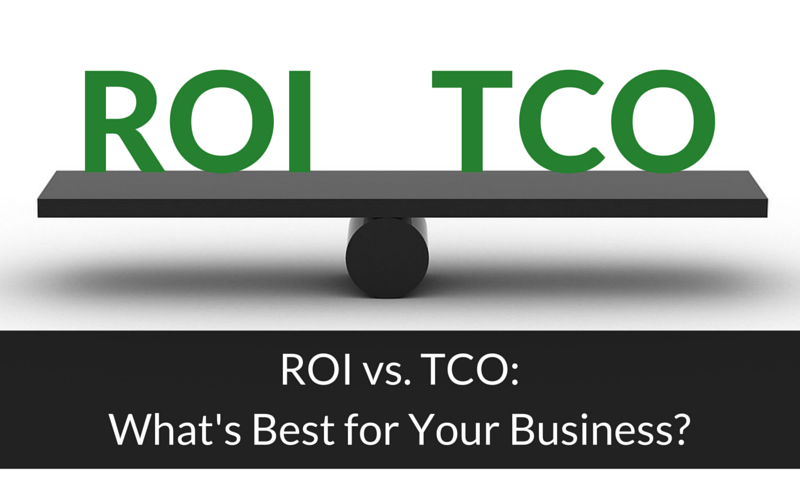Total Cost of Ownership (TCO) and Return On Investment (ROI) seem to be similar methods of proving cost effectiveness, but they perform best in totally different situations.
In fact, if you use a TCO tool at the wrong time in the sales process, you are taking a couple of big risks. Let's take a closer look at ROI vs. TCO and which tool is better for your business.











